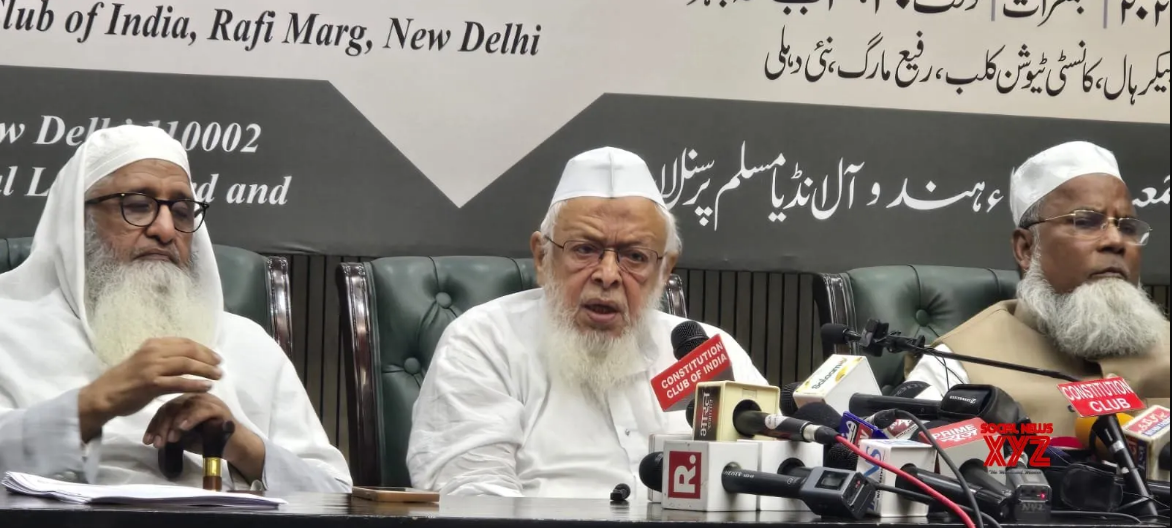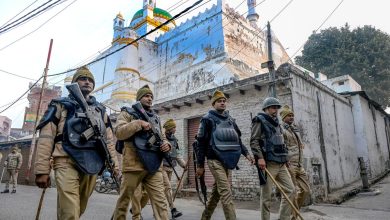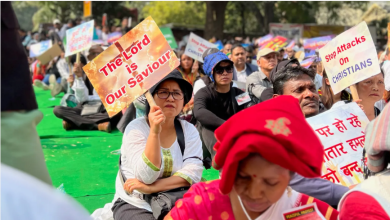JUH-convened meeting dubs Waqf (Amendment) Bill as unconstitutional

New Delhi: A consultative meeting, convened by the Jamiat Ulema-e-Hind in New Delhi, unanimously dubbed the Waqf (Amendment) Bill as “unconstitutional” and asserted that the proposed legislation is a “direct threat” to Waqf properties.
According to Kashmir Media Service, the participants in the meeting agreed to form alliances with like-minded political parties to amplify their opposition to the Bill.
The Bill was introduced in the Lok Sabha on August 8 and referred to a joint committee of Parliament after a heated debate, with the government asserting that the proposed law did not intend to interfere with the functioning of mosques and the opposition calling it targeting of Muslims and an attack on the Constitution.
A statement issued by the Jamiat Ulema-e-Hind said an urgent consultative meeting organised by the Muslim body’s president, Maulana Mahmood Madani, brought leaders from different organisations, political figures, social activists and legal experts to examine the Bill, assess its implications and outline strategies to counter the political and social challenges it poses.
Madani expressed grave concerns over the “deliberate spread of misinformation and communal hatred” aimed at Waqf properties.
He highlighted the urgent need for unified efforts across political, social and legal fronts to safeguard these properties.
The participants unanimously called the Waqf (Amendment) Bill “unconstitutional” and rejected it in its entirety, the Jamiat statement said.
They collectively recognised the Bill as a “direct threat” to Waqf properties, which hold religious and historical significance for Muslims.
“Any legislation that undermines the status of Waqf properties or interferes with the religious affairs of the Muslim community was unequivocally opposed. The meeting further stressed the importance of combating the false narratives surrounding Waqf through well-coordinated efforts,” the statement said.
Major public gatherings will be organised in Bihar, Andhra Pradesh and Delhi to create widespread awareness, it added.
Simultaneously, extensive multimedia campaigns — including videos, written materials and social-media initiatives — will be launched to debunk the misinformation being spread about Waqf properties, the Jamiat said.
Maulana Arshad Madani, who heads a faction of the Jamiat, emphasised that Waqf is a purely religious matter rooted in Islamic laws.
He called for a political and public movement to challenge the Bill, which he labelled as “detrimental to Muslim interests”.
Syed Sadatullah Hussaini, head of the Jamaat-e-Islami Hind, underscored the need for dispelling media-driven misconceptions and urged for a comparative study of endowment laws governing other religious communities.
Kamal Faruqui, member of the All India Muslim Personal Law Board, advocated for a nationwide campaign to create public awareness on the issue.
S Y Quraishi, former chief election commissioner of India, highlighted the necessity of engaging political parties and non-Muslim allies, especially the Sikh community, in the fight against the Bill.
Afzal Amanullah, a retired Indian Administrative Service (IAS) officer, debunked the government’s misleading claim that the Bill grants women the right to join Waqf boards, noting that such provisions already exist.
Former Indian Revenue Service (IRS) officer Mahmood Akhtar highlighted the significance of the Waqf Tribunal.
In addition, MP Maulana Mohibullah Nadvi, who is a member of the Parliament’s joint committee, Syed Zafar Mahmood, chairman of the Zakat Foundation of India, senior Supreme Court lawyer M R Shamshad, among others, delivered insightful presentations, addressing 10 common misconceptions, the statement said.








